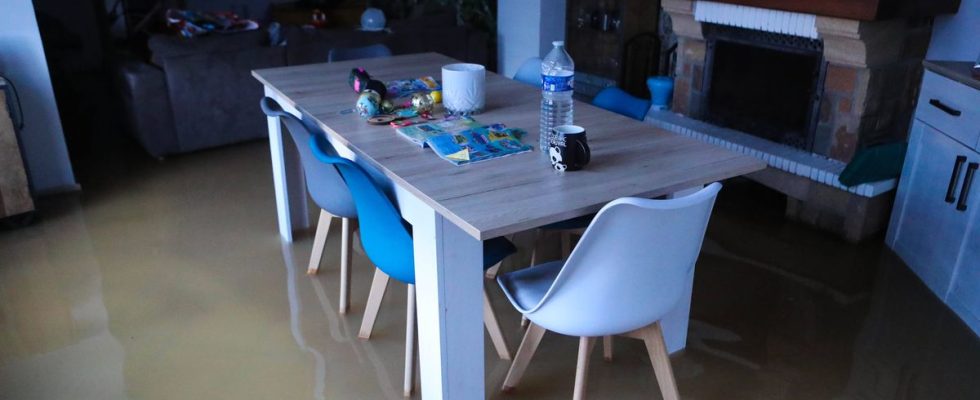Since Saturday, the North and especially Pas-de-Calais have been affected by flooding in rivers causing significant flooding. A scenario which revives the still gaping wound of the bad weather last November, which caused significant damage in the same sectors. In certain municipalities, such as Blendecques, residents have seen their homes flooded several times in the space of two months with, in perspective, the certainty that such events “are bound to happen again” as Olivier Véran deplored this Thursday. In terms of insurance, what does this imply?
Will the victims be compensated?
In fact, it depends on whether or not the government issues natural disaster orders following climatic events such as these floods. “If there is no decree, there can be no compensation, unless a specific additional guarantee has been taken out in the multi-risk home contract”, explains to 20 minutes France insurers. And no one does that, except in special cases, “if you live near a watercourse that regularly overflows,” continues the Federation of Insurance Companies.
For the floods of last November, in Pas-de-Calais, all the municipalities which requested it received the famous decree as promised by Emmanuel Macron when he visited the site. For those currently affecting the department, it is a little early, but France insurers has no doubt that natural disaster orders will be issued. From then on, “the affected person will be compensated each time, there is no ceiling on the number of compensations”, adds Jérôme Mahieu, specialist in the issue at the insurance broker Verspieren.
The final condition for being compensated in the event of a flood recognized as a natural disaster is to have taken out comprehensive home insurance. Indeed, according to the Central Reinsurance Fund (CCR), “property covered solely by a civil liability insurance contract is not insured under the natural disaster guarantee”. This concerns, in particular, third-party insured vehicles.
Should victims fear an increase in insurance premiums?
Generally speaking, yes. What is already in the pipeline is the increase from 12% to 20% on January 1, 2025 of the CatNat guarantee, a compulsory guarantee extension for all damage insurance contracts. “The CatNat scheme has been in deficit since 2015, increasing the contribution for this unique guarantee in the world is essential to ensure its sustainability”, recognizes France insurers.
The question also arises for premiums for home insurance contracts, the overall increase of which is inevitable. In 2023, the CCR published a study on the consequences of climate change on the cost of natural disasters in France by 2050 based on two greenhouse gas emissions scenarios defined by the IPCC. This cost is expected to increase between 47% (scenario 1) and 85% (scenario 2) by 2050.
Based on this CCR study, Réassure-moi, an online insurance broker, has deducts the impact on home insurance premiums. The average cost observed today of 471 euros per year should increase, by 2050, to 764 euros (scenario 1), to 1,061 euros (scenario 2). These increases will also be more marked depending on the territories depending on their greater or lesser exposure to climatic hazards. Still according to the Réassurez-moi study, the sharpest increases will be observed in the Paca, Brittany and Hauts-de-France regions.
Can victims have their insurance contracts canceled?
In the case of car insurance, it is not uncommon for careless drivers with multiple accidents to find themselves blacklisted. In the case of bad weather, the situation is completely different. For France insurers, even if this seems unlikely, the question cannot be asked in general. “There may be cases, but we cannot imagine insurers stopping covering individuals in an entire sector,” we are told. “It’s technically possible, but in terms of image, insurers wouldn’t risk that,” adds Jérôme Mahieu of the Verspieren broker.
Especially since the amounts of compensation relating to natural disasters are not only borne by insurance companies. “The CatNat guarantee is the result of a public-private partnership between the CCR on the one hand and private insurers on the other hand, with, in the background, the State guarantee,” explains France insurers.
This applies to individuals and more or less to businesses. On the other hand, for communities, a investigation by our colleagues at RTL shows that the task is more complicated. The Association of Mayors of France (AMF) thus recognized that around a hundred municipalities were simply no longer insured and that several hundred saw their contracts terminated on January 1. Others have also seen their premiums increase by sometimes up to 70%, an increase due to the economic situation, urban riots or climatic disasters.

